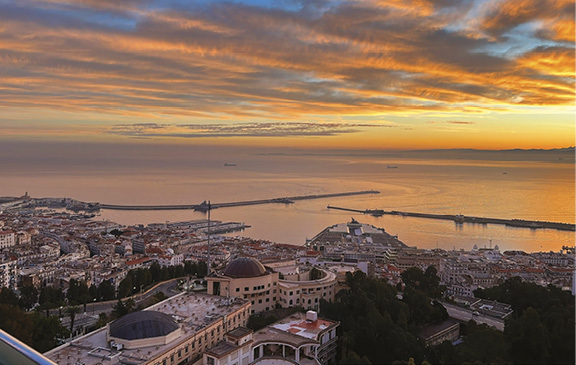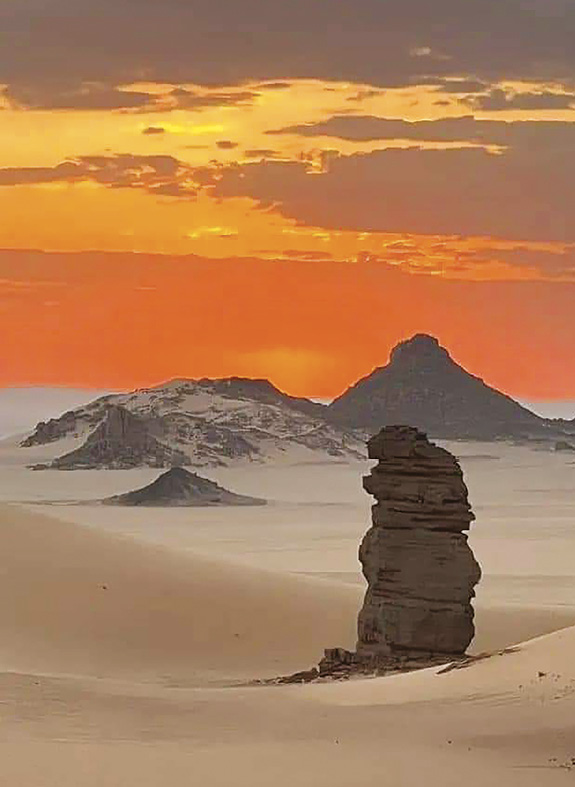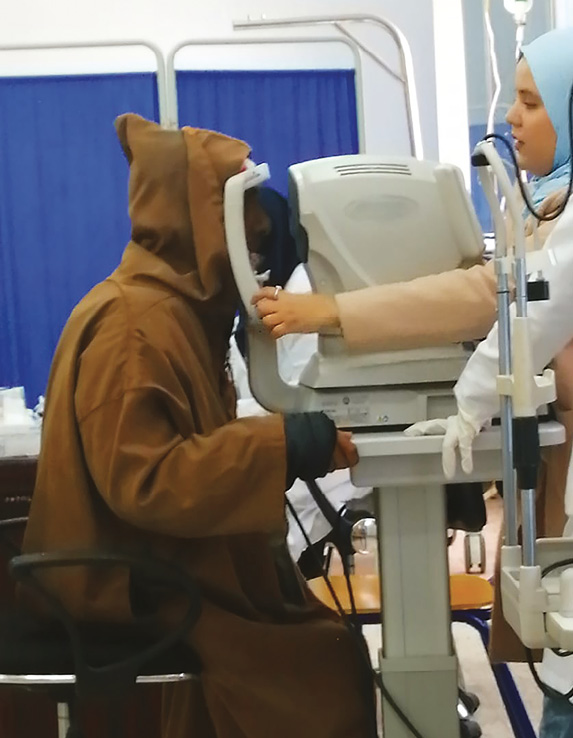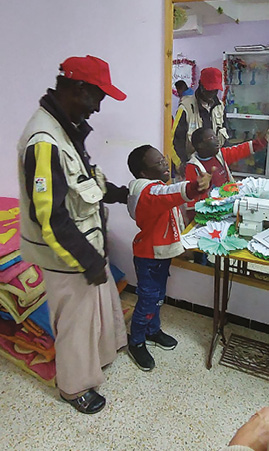For about 20 years, during the Christmas holidays, Nourredine Amirouche (called Nino) travels to Algeria, his country of birth, with the “Un bastone per l’Africa” Association to distribute essential material for the training and self-sufficiency of visually-impaired people (Braille tablets, cubarithms, white canes, etc.). The Cavazza Institute supports its activity by providing materials, services, and consulting. After becoming volunteers for “Un bastone per l’Africa,” some of its employees and collaborators decided to use their Christmas holidays to accompany and help Nino in Algeria, and this year so did I. We left Rome with 8 large boxes full of tiflotechnical materials and arrived in Algiers, where the customs checks were very scrupulous. I had read that Algeria is a land rich in history, culture, and breathtaking landscapes that mix the antiquity of archeological sites with the uncontaminated beauty of the Sahara desert, and what I saw and felt were medicine for my soul. My adventure began in the beautiful white capital, Algiers. Its Casbah, declared a UNESCO Heritage Site, carries you back in time. I was there on a Friday before the noon prayer, and in the white streets and houses you breathe and feel a marvelous sense of calm and meditation.

Just outside the Casbah is the Great Mosque, built around 1400 and enlarged in the late 1700s. The Friday prayer had just ended and, accompanied by Nino, who speaks Arabic, I asked if I could visit it. The thing that strikes you the most when you enter this Islamic temple is its mystical and engulfing atmosphere with its enormous and completely empty space, the floor covered with rugs, and the huge inscriptions of sentences from the Quran on the walls along with ancient Byzantine decorations. We then left for Djanet, an oasis city just a few kilometers from the border with Libya and Niger, one of the gates to the Sahara, to meet with the few local associations and to distribute our materials. Invited by Ibrahim Mermoura, the Governor of the Province of Djanet, and by Dr. Samia Bekhoucha, we were guests at the “Center for the disabled,” where we met the operators who help Dr. Samia care for the children, the adults, and the elderly with sensory and physical difficulties, as well as people suffering from autism. We met people with visual impairment and discovered that the three most frequent eye diseases are glaucoma, complications from diabetes, and cataracts, linked to the combination of three factors: very bright light, sandstorms, and lack of water. When people rub their eyes, they also tend to develop eye infections. Therefore, we donated many pairs of sunglasses as well as corrective glasses, and distributed both white and walking canes for the elderly.

Blind and visually impaired people have a severe lack of mobility: they are cared for by their families on a daily basis, and so the elderly are “forced” to use wheelchairs not because of any physical problems, but because this way they are “more manageable.”
Sight-impaired children go only occasionally to the “Center for the disabled,” where they do manual activities and read or write with a small magnifying glass. Braille is unknown, primarily due to the lack of teachers, and blind children move around very little, almost always sitting when they play or do manual activities. At the Djanet Center we left many games suitable for all the children, hoping to give them a moment of cheerfulness, but what is really lacking is training and basic medical material: eyedrops are more important than any tiflotechnical tool. The operators and Dr. Samia Bekhoucha do an enormous and commendable job, even using their own money, but they’re a “drop of water in the desert.” Nevertheless, the Center is a vanguard of civilization and respect for people with difficulties.

After this, we left in a jeep to discover the charm of the “Tadrart Rouge” and spent 4 days in an enchanted world, sleeping in a tent and eating barbecued food. The Sahara and its colors, silence, and brilliant stars marked my soul. We then left the desert and went to the Tiessemsilt Hospital, where the ophthalmologists examined about 200 people at no charge and we gifted eyeglasses and tiflotechnical objects.
Many blind people came to visit, and we noted the same issues as in Djanet. We decided to help two children, aged 5 and 9, who need corneal transplants. In Italy, this procedure is relatively low-cost, not invasive, and recovery is rapid.

These children come from poor families and accepted our help with great gratitude and dignity. But I felt impotent and bitter because so many people had placed their hope in us and we were unable to provide them adequate help.
Back in Italy after 12 days away, I felt I had woken up from a dream containing countless emotions.

.jpg)



.png)